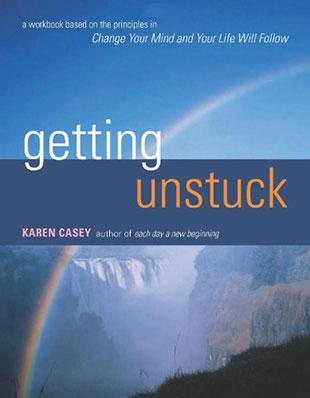"Life lessons are why we are here. It's been my experience that these lessons are most obvious within the relationships that command the bulk of our attention. As I have said in other sections of this book, I think we agreed to these particular lessons before our birth on this earthly plane, an agreement that was forgotten as soon as it was made.
"But let's explore the real meat of this idea. Even though our lessons necessitate our experiences with others, my lessons will not be the same as yours. Getting my lessons confused with yours, as happens among friends, contributes to the enmeshment we may be guilty of creating, an enmeshment that hinders the growth that both of us are here to experience. Pointing this out is not designed to undermine the progress of either of us. It's simply to help us see how delicately our paths are woven together. We must maintain this delicate balance, this 'dance,' without stepping on the toes of one another. Stepping on toes is an indication of our untreated codependency.
"I personally find it exciting to recognize, in my companions, those subtle hints of why we are traveling this path side by side. Although I have to remain vigilant against the desire to interpret your lessons and then steer them, I like knowing that the God of our understanding travels with both of us every step of the way. The bottom line is this, however: Your life is yours. Mine is mine. We need each other, but we aren't traveling together in order to fulfill the same exact purpose.
"Let's look at that purpose next. After living seventy-two years, thirty-six of them in the rooms of AA and Al-Anon, I have been able to very clearly discern that one of my primary lessons has been to give up my desire to control all the people who cross my path. Giving up this desire has not been 100 percent successful, I might add, but having the desire to control, and acting on it, are quite separate in execution. I may want to control all the people around me, and I very often do want that, but wanting to and actually attempting to are not the same. From many wise men and women on my journey, I have learned the finer points of the difference between wanting and attempting.
"One of my primary lessons, along with recognizing that wanting to control stems from our natural insecurities, is that I have needed to master the art of detachment. Control and detachment actually go hand in hand. But I think detaching is a more subtle response to the many personal encounters and circumstances that occur on a daily basis. I was unable to detach from any situation or person for most of the first forty years of my life. Whatever another person did impacted me to a great extent. Fortunately, I am not imprisoned by the moods and behaviors of others as a general practice any longer. However, it can still happen, and it very recently did. I want to share some of the details of my experience simply to show that our vigilance against getting ensnared by the behavior of others can never be relaxed.
"Over the period of a few weeks, I was voluntarily trying to help another person on this recovery path with some issues that were troubling her. I could well understand her struggle and was hopeful that my words of encouragement, based on my own experience, strength, and hope, could be heard. What I hadn't counted on was that I would become the target of her anger, which resulted in an assault, of sorts, on me. I was caught completely off guard and suddenly felt vulnerable to her attack.
"Even though I had been a practitioner, for years, of the idea that the behavior of others need not affect me or my feelings — as I've stated, one of the key lessons I've learned — I was thrown slightly off balance by the situation. While I knew her attack wasn't actually about me, I also discovered that my feelings could still be injured unless I turned to God every moment I felt under siege. My handling of it was to bless her every time I thought of her and to see her surrounded by the white light of God's presence.
"Eventually I was able to fully hand her over to God. What I learned in the process was that, much like addiction, the inclination to let the behavior of others affect us dies a hard death. And when it's one of our primary lessons, it may continue to visit us periodically, perhaps as a recap of why we are here. Pronouncing it good, rather than being undermined by it, keeps our connection to God as tight as it always needs to be. I have chosen to see this experience as a simple reminder that our lessons come in many forms and every one of them adds a new thread to the tapestry of our life."
